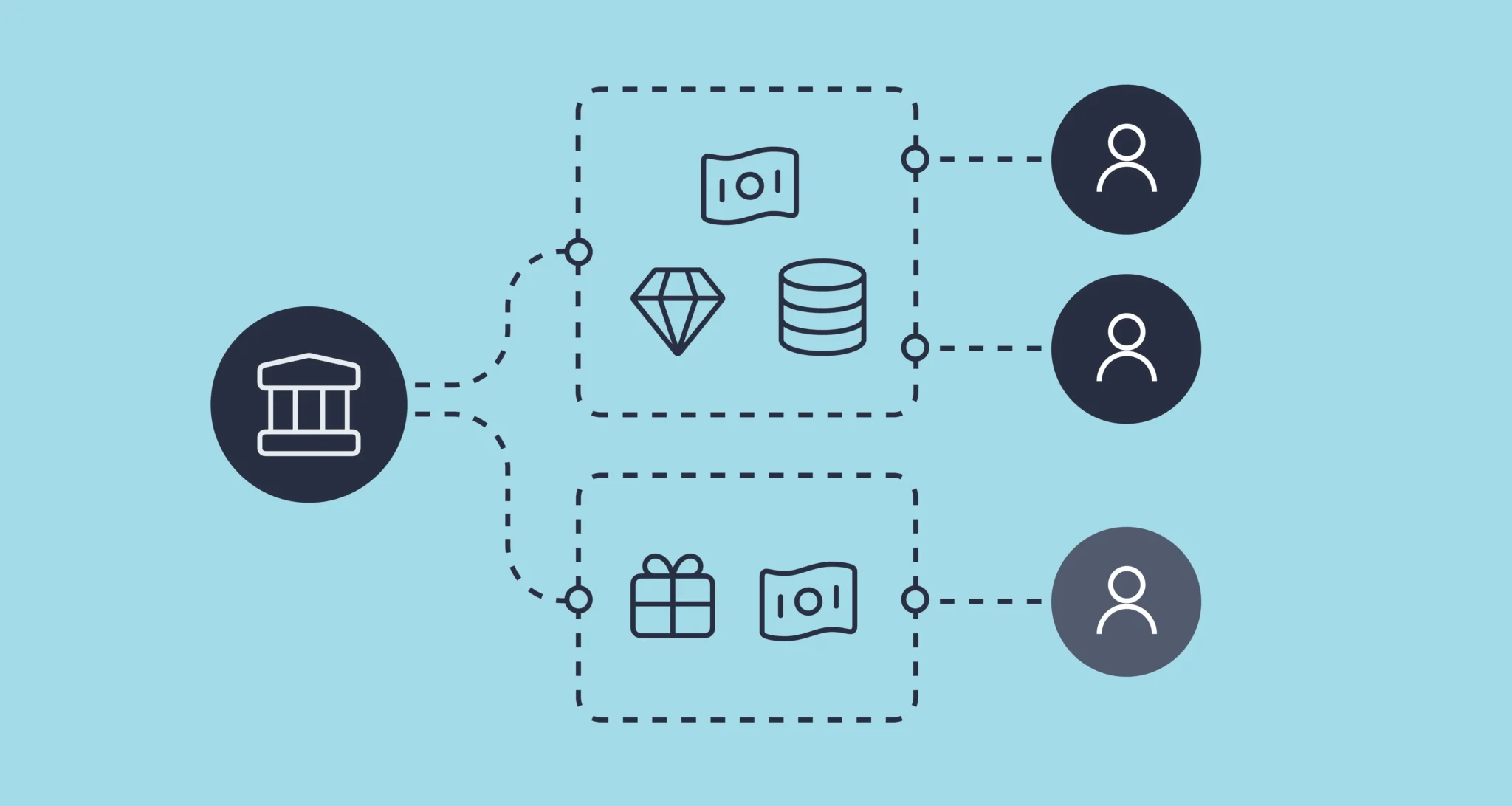 Simona Ondrejkova, CFP
Simona Ondrejkova, CFP
Buy-Sell Agreements: Why Your Clients Need One

If you have clients who own a business, it’s important to be familiar with the buy-sell agreement. This type of contract can act as both a business succession tool and an estate planning tool.
Putting a buy-sell agreement in place can avoid potential threats to the continuation of the business that your clients have worked so hard to build or help avoid liquidity issues to ensure their loved ones are taken care of.
If a partner in a business dies or exits the business because of a disability or other reasons, a buy-sell agreement provides the method for transferring that partner’s shares to the other partners or back to the business.
Here, we’ll help you understand what exactly a buy-sell agreement is and how it works so you can help your business-owner clients leverage this tool amidst other estate planning strategies designed to help them leave a legacy in accordance with their wishes.
What is a buy-sell agreement?
A buy-sell agreement is a contract drawn up between the partners or shareholders of a business to outline what happens to each owner’s share of the company if they leave the business, whether due to death, disability, retirement, or other reasons.
From a business succession planning perspective, a buy-sell agreement helps small business owners ensure that shares aren’t sold to external parties who could negatively impact the business. It also reduces the risk of having to liquidate business assets to keep the business going.
From an estate planning perspective, a buy-sell agreement can help clients ensure that their assets are passed according to their wishes while planning for potential estate tax consequences.
Who needs a buy-sell agreement?
Anyone who has a direct ownership interest in a business without a clear plan for disposing of that interest in the event of death, divorce, disability, or a decision to exit the business should consider putting a buy-sell agreement in place. Without a buy-sell agreement, conflicts or even legal battles may arise between the heirs, or the remaining partners in the business, or both.
For example, let’s say your married client John owns a business structured as an LLC and runs it with two other business partners who are also actively involved in the business. John’s wife Sue is not interested in managing or running the business.
John wants to make sure that his partners can continue running the business and that Sue would have enough assets to live on if he passed away. John and his other two partners could create a buy-sell agreement for the LLC that specifies that upon death, the remaining partners have to buy out the shares of the deceased partner with the proceeds going to the surviving spouse. John and his two business partners could use life insurance to fund this purchase so that the business assets or the surviving partner’s personal assets won’t have to be liquidated at an inopportune time.
4 elements to make a buy-sell agreement work effectively
A buy-sell agreement is a legally binding contract and; therefore, should be drawn up by an estate planning attorney in the state where your client resides or where the business entity is registered. In order for the buy-sell agreement to work in alignment with your clients’ goals, the following things should be considered:
1. Choose the right type of buy-sell agreement
The primary partners or shareholders in the business should discuss the goals of the buy-sell agreement and choose the type that best meets the needs of the business and the individuals involved. We expand upon the different types of buy-sell agreements in the following section.
2. Specify the triggering events
It’s important to specifically name the circumstances under which the buy-sell agreement will come into effect. These are known as triggering events and often include the death, disability, or exit of one of the business owners.
3. Determine the valuation method for the business
Because there are several ways to value the business interest of the partners or shareholders, it’s essential to state the valuation method clearly in the buy-sell contract so there is no confusion or conflict after the triggering event happens.
4. Decide how to fund the agreement
Depending on the value of your client’s business, it might be difficult for the remaining owners or the business itself to come up with the cash to buy out the departing partner when the triggering event happens. That’s why life insurance is often used in conjunction with the buy-sell agreement as an important component of funding for business succession planning.
Additionally, certain provisions can be included in the buy-sell agreement, such as the right of first refusal to ensure that existing partners or shareholders have the option to buy the selling owner’s interest before it can be sold to an outside party.
Types of buy-sell agreements
Depending on what your business owner client and their partners wish to happen with their business interest upon the triggering event, there are three different types of buy-sell agreements that can be created.
-
Cross-purchase agreement
A cross-purchase agreement stipulates that the remaining owners will buy the departing owner’s share of the business. Each owner purchases a proportionate share of the departing owner’s interest, ensuring continuity of ownership within the existing group of owners. Insurance is often used to fund this cross-purchase agreement, with each owner buying a separate life insurance policy on the lives of the other partners.
-
Entity-purchase agreement
Unlike a cross-purchase agreement, in which the remaining owners buy the departing owner’s share directly, an entity-purchase agreement (also known as a redemption agreement) involves the business entity buying the departing owner’s interest. The business entity then retires or redistributes the purchased interest among the remaining owners.
While the cross-purchase agreement is suitable for small businesses, businesses that have a large number of owners may be better off using an entity-purchase agreement. In an entity-purchase agreement, it’s important that the business has enough cash to finance the purchase of the departing owner’s shares, such as through a keyman life insurance policy.
-
Hybrid agreement
A hybrid agreement combines elements of both the cross-purchase and the entity-purchase option. The specific method of purchase can be tailored based on circumstances such as tax considerations, funding availability, and the number of owners. The business partners could structure this so that the remaining owners have the option to buy the shares of the departing owner first, followed by the requirement to have the business buy the remaining shares. Vice versa, this could also be structured so that the ownership interest is first offered to the business entity itself. If the entity declines to make the purchase, the shares are then offered to the remaining owners.
Choosing the valuation method for a buy-sell agreement
The valuation of the business at the time of a partner’s death can directly affect that individual’s estate taxes because the value of the deceased partner’s ownership interest is included in their estate. A higher valuation increases the taxable estate, potentially resulting in higher estate taxes, while a lower valuation reduces the taxable amount, potentially lowering the estate taxes.
So how can the partners or shareholders plan for determining the value of the business interests upon the triggering event in a buy-sell agreement? The most common ways include the following:
1. Fixed price method
In this method, the owners agree on a fixed price for the business interest upon creating the buy-sell agreement. The downside of this method is that as the business grows, the amount may not accurately reflect the business’ current value.
2. Formula method
The formula method uses common business metrics such as book value or a multiple of earnings or revenue to calculate the value of the business. While this may provide a more objective basis for valuing the business, it may not capture all aspects of the business’ value.
3. Appraisal method
Another way to value the business interest is to hire a professional appraiser to provide an independent valuation based on current market conditions.
It’s important that whichever valuation method your client selects, that it is used properly and in accordance with current tax laws. If the IRS deems that the deceased owner was attempting to transfer his or her business interests for less than full value to make a disguised gift or otherwise reduce potential estate tax liabilities, the value of the business may be challenged.
It’s also helpful to keep in mind that some of your clients may be able to use certain valuation discounts to legally reduce the value of the business interest for estate purposes. Common discounts include the minority interest discount, the lack of marketability discount, and the key person discount.
How do you fund the purchase of business interests under a buy-sell agreement?
Funding the purchase of business interests under a buy-sell agreement can be achieved through several means. The most common ones include life insurance or a promissory note.
A life insurance policy can be used to fund the purchase of shares upon a partner’s death. This will provide the liquidity needed through a tax-free death benefit. The death benefit amount should be chosen to align with the value of the business to ensure sufficient coverage. Keep in mind that the business might grow substantially between the moment the contract is drawn up and the moment of the owner’s death.
A disability insurance policy can be used to fund a buyout of a disabled owner’s interest, if a disability is named as one of the triggering events in the buy-sell agreement.
Another option that can be used to fund the buyout is a promissory note. This is where the buyer of the business interest promises to pay the departing owner or his estate a specified amount over a defined period. Using a promissory note to fund the purchase of business interests offers flexibility and immediate transfer of ownership while allowing payments to be spread over time. However, it creates a long-term financial obligation for the buyer and involves risk for the selling party.
The buy-sell agreement as part of a holistic estate plan for your clients
When assisting your business owner clients with their estate planning, the buy-sell agreement is a key component to include in your discussion to help them ensure a seamless transition of ownership and business continuity while providing security for the remaining owners or heirs.
The way a buy-sell agreement is executed can have a significant effect on your client’s overall estate plan and estate taxes. That’s why it can be helpful to provide your clients a visualization of how their assets would flow upon their death through an estate planning software like Vanilla.
Not sure how to start the estate planning conversation with your business owner clients to best help them plan for the unexpected? Use our estate planning checklist to gather the essential documents to get the conversation going and help them leave their best personal and professional legacy.
Published: May 29, 2024
Holistic wealth management starts here
Join thousands of advisors who use Vanilla to transform their service offering and accelerate revenue growth.
